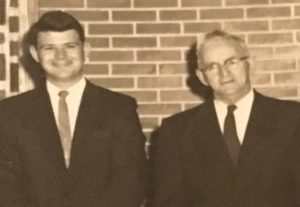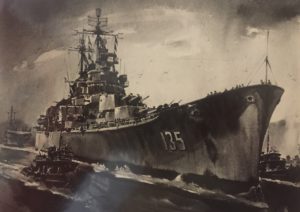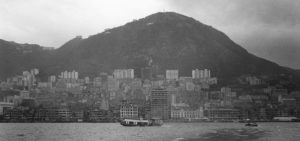Dad usually disciplined me and my brothers by whipping us with his belt although he knocked me down once when I was 13 or 14 with a right to my face* because I had disobeyed — I was late coming home. And I saw him wail on one of my brothers, Pop, with a crutch.
Part of the crutch story was told to me but I saw the wailing part with my own eyes.
Pop ran away from home in 1949, when we lived on a farm near Gadsden, Alabama. He was 15 years old; I was 7. Pop went to Chattanooga, Tennessee, and got a job in a cotton mill.

Dad made some phone calls, figured out where he was, and sent my oldest brother, John, to bring him home. Dad would have gone himself but he was in the hospital, Jane Greer, one of my sisters, told me. According to the way I heard it, Dad broke a leg when the brakes on a coal truck failed and the truck went over the side of a mountain near Altoona, AL. According to the way Jane remembers it, Dad was in a jeep that went over the side. In any event, his leg was broken and he was in the hospital.
John and his wife, Mary, and Jane and her husband, who was also named John, went to Chattanooga, to the cotton mill, to get Pop. But he wouldn’t come. Pop swung first and he and John fought, Jane said. The police came and took Pop away, first to jail, and then to a juvenile detention facility, she said. It didn’t have bars, it was more like regular house.
The four of them then drove back to Gadsden and my brother reported to Dad, who, like I said, was in the hospital.
According to Jane, Dad checked out of the hospital and hired an ambulance to take him, Brother John, and Jane’s John back to Chattanooga, about 90 miles. They arrived at the juvenile detention facility after dark.
Dad identified himself to the fellow in charge of the house and said he had come for his boy. According to family lore the keeper said he couldn’t have him, that Pop had to go to court because he was a runaway.
“You don’t understand,” Dad told the man. “We’re not talking about whether I get my boy — I’m going to get him. What we’re talking about,” pointing to Brother John, “is whether he has to put you on the ground first.”
Now the keeper understood. Dad got Pop and they rode back to Alabama, I was told, in silence.
I was there when they came in the farmhouse, into what we called the back living room.
“You think you can lick the old man now that I’ve got a broke leg, don’t you,” I heard Dad say to Pop.
“No sir,” Pop replied.
“You think you can, but you can’t.”
He leaned on one crutch, toss the other one in the air, caught it about a third of the way from the bottom, and commenced to whacking Pop with the crutch.
Postscript: Pop revered our father and imitated his mannerisms. Years later Pop and I were up at Snowbird, sitting by the fire outside the cabin, when he told me: “If I go to hell it’ll be for idol-worshiping Dad.”
*In the 1980’s Brother John wrote a 123-page book about his life and times in which he recounted an event when he was in the 8th grade and he had to tell Dad, “I was expelled from school for stealing a book.”
“Several seconds passed in silence,” John wrote. “Then his fist crashed into the side of my face and I went sprawling into the middle of the room.”
Coming Monday: Lucky’s Best Story

